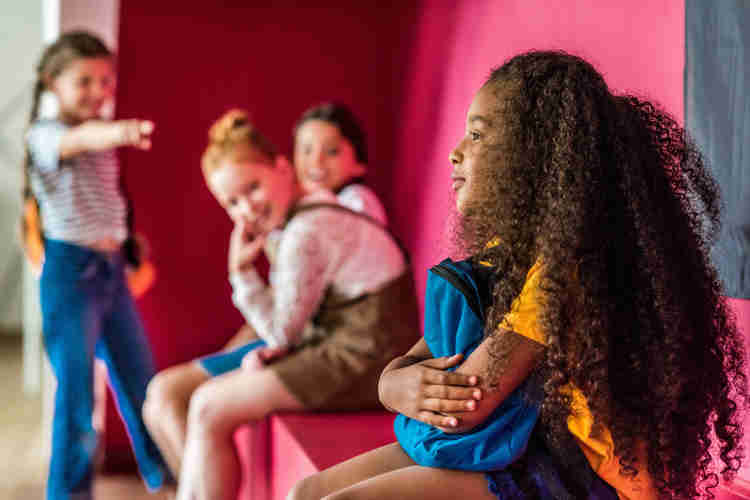

Top of Mind: Connecting Families to Mental Health Supports
Mental health and well-being are at the heart of my professional and personal life. As a coordinator for a Coalition of organizations that are involved in providing mental health and substance use support to Black residents in the Ottawa Region, it’s important that I am familiar with what’s happening in the mental health and substance use health sectors. To be clear, I am not a mental health professional. I leave that to the experts who work at our member organizations. My professional role focuses on supporting their work, connecting individuals and communities to programs, and advocating for more significant investments in system changes that address equity and access to mental health and substance use programs and resources for Black communities.
As a mom, I sometimes struggle to relate to my school-age child, growing up in very challenging times. I often worry about whether I’m doing enough to support my family’s well-being. Losing my younger brother to many struggles with both mental illness and substance use was devastating for me 7 years ago. Grieving while parenting a young child is not easy. Taking care of my child gave me rhythm and purpose. Still, I also felt like it prolonged the grieving period, at times forcing me to set aside my emotional needs in the moment to be present for my family. I do not profess to have been exceptionally gracious or dignified during this process. I often felt overwhelmed or taken by surprise by my grief, frustrated or angry for no apparent reason. This had an impact on everyone around me. I realized taking care of my own stresses and challenges is necessary to effectively foster well-being for everyone in my home.
Ottawa Public Health (OPH) recently shared their Mental Health Experiences of Youth in Ottawa report, and 42% of students in grades 7-12 reported wanting to talk to someone about a mental or emotional problem but didn’t know where to turn. Sixteen percent of students in grades 7-12 said that they had considered suicide in the past 12 months. Students from lower-income households were twice as likely to report having considered suicide. With data like this, the implications for students and their families are significant. But it also means that if your family is facing challenges, you are not the only ones struggling. There are things you can do to foster mental well-being for yourself and your loved ones. According to OPH’s 2020 study on the Mental Health of Ottawa’s Black Communities, “family circumstances and personal factors, such as personal and lived experiences, coping mechanisms and the openness to having conversations about mental health within the family circle were also raised as having an influence on the beliefs and attitudes people have about mental illness.”
In my personal life, being honest with myself and my loved ones about how I’m doing is one way to model healthy help-seeking behaviour. In my professional life, normalizing the conversation around mental health and well-being and sharing information and resources is one way I hope to help others in my community.
The first resource I recommend for Black families in Ottawa is the African Caribbean Black Mental Health and Substance Use Resource List. This list features French and English programs and services across the city. It provides a quick snapshot of what FREE services are available in Ottawa, including youth and family counselling.
Counselling Connect is another excellent resource for anyone in the Ottawa region. Counselling Connect provides quick access to free counselling sessions in English, French, Arabic and other languages. You can book the session online, and a counsellor will contact you for your appointment. It’s free and anonymous, and appointments are available for adults and youth. There are also links to Peer Support groups you can join to connect with communities and foster well-being. Peer Support can be a great way to meet and learn from people with similar experiences. Whether you are a new parent or, struggling with substance use, or both – peer support can be beneficial.
For those who need help figuring out where to start, you can contact one of the support lines available in the city. The support lines can be an excellent place to get practical support, learn about the community and social services available in your area, and links to mental health and substance use supports.
Black Racialized Individuals Support Channel
(BRISC) for racialized communities is provided by Britannia Woods Community House, which offers practical support and referrals for support in English, French, Somali, Arabic, Swahili, and Lingala. The knowledgeable team can also answer questions about community support, services, and other programs. For crisis support, call BRISC at 613-820-0853
Black Community Phone Support Line
This phone line is provided by Somerset West CHC. It is available in Swahili, English, and other languages on request. It offers practical support and referrals for support, including Counselling Connect and other health and mental health services. Phone Support Line: (343) 571-0097
Distress Centre of Ottawa and Region
This is the main service that is available 24 hours a day. The Distress Centre has approximately 210 volunteers answering over 60,000 calls a year. It is available 24/7 and has multiple lines for Distress: 613-238-3311 and Crisis: 613-722-6914 or 1-866-996-0991. Individuals, families or concerned friends may call the Distress or Crisis Line, where Responders will assess each situation, offer support, and, if required, connect you with the appropriate Crisis Team in your area.
There is no perfect solution or service for every family, and developing coping skills and strategies can take time. Be patient with yourself and others as you navigate the challenges in life, and know that there are opportunities to bring mental health and well-being home to you and your family.
Learn more about supporting your child’s mental well-being at Parents for Diversity’s upcoming workshop in November. Join Parents for Diversity’s Youth Mental Health Workshop on Nov 16th in partnership with OPH, SWCHC, and Umoja Collective. This event is an excellent opportunity to talk about Youth mental health, learn about the services available, and hear from students about their experiences as Black youth in the city.
Registration link: https://www.eventbrite.ca/e/732831868847
Michelle James
Coordinator, Ottawa Black Mental Health Coalition
Somerset West Community Health Centre



